Joseph Caldwell
LAZARUS RISING
A Novel
In loving memory
Though nothing can bring back of hour
Of the splendor in the grass
William Wordsworth, Ode: Intimations of Immortality
Do not go gentle into that good night,
Rage, rage against the dying of the light
Dylan Thomas
Dempsey Coates first met Johnny Donegan the night the Haviland Piano Factory burned, all six floors of it. There had been no Haviland pianos made in the building for over fifty years, but the light industry that took over the loft spaces lacked sufficient individuality to offer an identity that might replace the superseded pianos. Even after the gutted shell was rebuilt and occupied by artists, sculptors, lawyers, and psychiatrists, it would be known as the Piano Factory.
Dempsey did not live in the Piano Factory. She lived down the block on the other side of the street, the uptown side, in a building with no name, with no particular history.
Coming home from a gallery opening, shed had to retrace her steps back to Varick Street, go around the block, and come to her building from the other direction, from the west. Her own street was blocked by what was called the apparatus: fire engines, ladders, chiefs cars, an ambulance, and enough crisscrossing hose to map the entire Northeast.
In spite of the nipping cold, Dempsey had walked down from Prince Street, across Canal to Tribeca, reveling in her defiance of the winter weather, refusing to hunch her shoulders, to draw her arms protectively against her sides, to shiver or to shake. Her head she held high so the wind could have its way against her chin, her neck. The thick woolen scarf, a greenish brown, shed knitted it for her best friend, Winnie, then decided to keep it for herselfwas allowed to warm her chest, but her face must be kept open to the elements, an eager participant in the crisp iced air that made taut her skin, numbed her lips and all but cauterized her eyes.
Rather than be annoyed by the enforced detour, she lifted her head even higher, amused that her encounter with the winter night would now be prolonged. Out the cloudy breaths came; more joyfully defiant was her sure step onto the granulated frost covering the pavement. She went to Varick, turned north for one block, made the turn to the west for two blocks, then south one block and back onto her own street. She stopped at the corner and took in the spectacle.
Klieg lights lit the entire scene as if someone were making a movie. Huge blasts of water shot skyward, sculpting gothic stalactites on the buildings overhang, on the lintels and sills of the blown-out windows. A voice was heard on a loudspeaker, urgent, annoyed, the director trying to keep control of the action.
Helmeted firemen in cumbersome coats and gauntlet gloves and what looked like wading boots, only heavier, the kind favored by the Three Musketeers, were wandering in and out among the apparatus, stumbling on the hoses, some of the men carrying poles, some humping the hoses to feed out more line toward the ladders, others, faces blackened, the whites of their eyes seeming, in contrast, to be made of milk glass. The men traced their way along the hoses to other hoses that might or might not lead them to where they wanted to go.
Only the fire itself seemed organized. The Piano Factory had become a chimney, the roof completely opened, the flames rising, red orange mostly, a blacker red beneath, billowing skyward rather lazily, enjoying themselves, knowing that the worst was overthe blind snaking between walls, underneath floors, the fires panicked attempt to find more air. Now the flames had found their way into the open sky. All would be well. They could breathe. They could take it easy; they could just rumble and roll themselves, great mounded billows, folding back into themselves, demonstrating what it really meant to be fire.
Four firemen were walking toward Dempsey. They were weaving, stumbling against each other, bumping shoulders, unsteadying themselves all the more. The man in the lead was using a pole of some kindwith a two-pronged hook at the tipas a walking staff. One of his boots had flopped down to his calf and his helmet was tipped slightly to the side, an attempt, perhaps, at style. At each building theyd stop and the lead man would try the door. When it failed to yield, hed pound on it, wait, and then they would all move on.
Dempsey heard one of them say, They know were here. They know were freezing. The men stomped up the three steps onto what had been the docking platform of the building next to Dempseys. After hed yanked twice at the door, he pounded with his fist, then looked up at some lighted windows on the third floor. Were freezing, he yelled. But his voice was caught up in the shouts, roars, and crashing from the burning building behind him.
Dempsey thought she should at least point out that there were six doorbells arrayed along the sides of the doors, each an independent installation that accommodated the occupied lofts inside. It then occurred to her that she herself had only to open her own door with her own key and the men would find warmthor at least shelter, since the hallways of the building were unheated. Or she could invite them to her loft. If there was time, they could warm themselves, recover their strength and return to battle the blaze refreshed. Who could do less? She could make coffee. She was not, by nature, an easy host, but for four freezing and exhausted firemen she might be able to mutate into something more gracious.
You looking for a place to warm up?
No, said one man standing slightly behind the others, were selling the Encyclopedia Britannica.
All right then.
Wait. Yes. The lead mans voice was more weary than repentant. Weve been relieved for a quick break. Were looking for a place to warm up.
Well, youve come to the right place. Dempsey fiddled in her coat pocket for the keys. The clip of a Bic pen was caught in the key ring. She jiggled it free, then drew the keys out of the pocket. A roll of Certs dropped to the cement. No one stooped to pick it up. She put the key into the lock and opened the door. The metal scraped along the cement, the hinges whined, the door itself complaining of the cold.
By the time Dempsey had taken the key out of the lock, the firemen were inside. She retrieved the Certs, then closed the door behind her. The men had plopped themselves down onto the bottom steps of the wide stairway that led to the floors above. The lead man had set his staff against the wall and had lowered his head onto his crossed arms. The others leaned either against the wall or the stairway railing. They were breathing heavily as if theyd run rather than stumbled down the block. Gray mucous flowed from their nostrils, wetting the black soot on their chins, dripping down onto the clasps that held closed their rubber coats.
You want to come upstairs? Its warmer there. Dempsey pulled the thick chain that would bring down the old freight elevator. The clanking and clattering began as if a full complement of galley slaves had been lashed into labor. The leader raised his head and drew his gloved hand over his ears, then let the hands fall back to his knees. Were okay here, he said. We dont have that long. But thanks. Some of the words were obliterated by the clanking elevator chains, but Dempsey thought she understood the meaning.
Ill bring down some coffee. Black okay?
Sounds great, the man said.
The elevator, with a thump, arrived. Dempsey gave the upper half of the door a quick hoist, sending the lower half down into the floor. After shed stepped inside and the door began to close, she saw that the man had lowered his head again onto his arms.
From the large pot that brewed endless amounts of coffee that shed drink while spending long hours at her easel, Dempsey brought them down cups of it, not on a tray but on a piece of Plexiglas stained with paint, some of it in gobs, some in streaks that had washed into the other colors. It was, Dempsey explained, a palette. She was a painter. An artist. Their lack of interest in so fascinating a revelation might have annoyed her, but there was nothing much she was willing to do about it. A lecture on the importance of the artist in our society did not seem relevant under the circumstances.

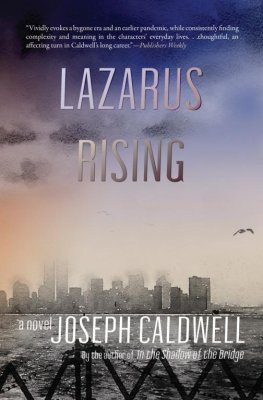

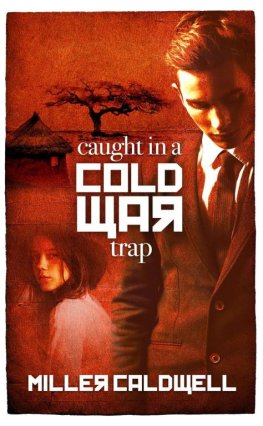

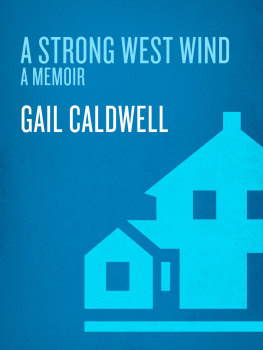

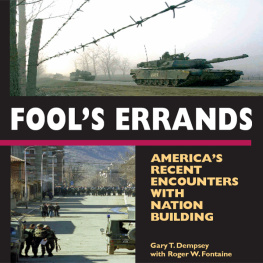
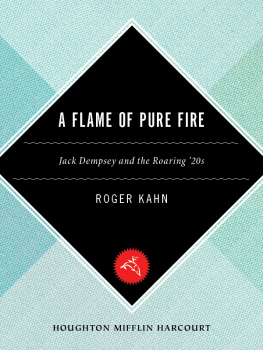
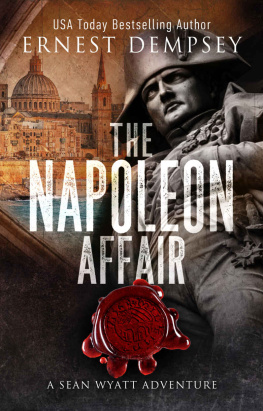
![Chloe Caldwell [Chloe Caldwell] - Women](/uploads/posts/book/114454/thumbs/chloe-caldwell-chloe-caldwell-women.jpg)
